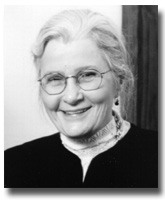
Elizabeth Unger responded to some questions as a preview to the interactive “Nostradacademe” presentation this Wednesday at the IDT Roundtable (11 a.m.-12:30 p.m. Oct. 28 in Union 212). She shares some of her predictions about the future of higher education in this question/answer format.
Q: What are some of your predictions for the future of higher education?
Below are a few about faculty and instruction.
- Para professional faculty
- Faculty appointments at multiple institutions
- Collaborative teaching and research teams from multiple institutions including business, industry, and governmental – including international scholars
- Move from tenure for faculty to long-term contracts
- Instruction will continue to move to the “guide on the side” modes of instruction
- More emphasis on solving real-world problems in the educational experience most likely will occur; perhaps providing a new form of internship or coop experience
Q: On what do you base your predictions for the future?
On the ideas of visionaries over the past 3-5 years, including those who are actually making changes. Some are part of an Association of Public and Land-grant Universities (formerly NASULGC) report due out in November. Predictions also are based on a review of literature, attendance at professional meetings, conferences, and more.
Q: How accurate are your predictions? Why?
If I could accurately answer this, I would be much more popular as a speaker. However, many predictions noted here have been postulated by educational visionaries, and K-State needs to look seriously at the predictions.
Q: What are the main influences going to be on higher education in the near-term future? And in the far-term?
Near-term influences:
- Public expectations of higher education to produce graduates who can function in new arenas
- Economic prosperity
- Challenges based on the exploding population and stresses on the environment
Longer-term influences:
- Proliferation and communication of information via the global web will change not only intellectual property policy but also the definition of an academic contribution and the timing of publications.
- Further consolidation of nations in terms of currencies, trade, etc., most likely will occur; for instance, the continuation of larger population groupings — e.g., the European Union.
- And if you believe some folks, we will have space colonies to educate and be educated by.
Q: How can universities prepare themselves for the future?
- Continue to move to more productive learning environments for students, including involvement in the solution of real-world problems.
- Work toward policies that encourage and reward experimental teaching and research at the borders of traditional disciplines.
- Consider the creation of colleges that have collections of faculty expertise to approach the challenges of the day.
Q: What is the role of information technologies (IT) in the future in terms of higher education?
Robust access to people and information will be essential to scholarship in the future. Technologies to find, analyze, synthesize, create, edit, and publish all forms of data in collaborative ways is critical to be a part of the global world. Universities that do not have and teach these capabilities will find themselves in a position of non-competitiveness. A campus infrastructure to support increasing bandwidth and access to multiple-terabyte storage will be critical.
Q: Overall, are you hopeful for the future of higher education? Why or why not?
Universities became the source of new information for the people in the Middle Ages and survived as viable institutions since that time. Only the Icelandic Parliament and the Roman Catholic Church have existed longer. Thus, despite the introduction of the printed book and the spread of education to the masses, the universities have evolved to meet society’s needs. I believe, with such a track record, we too will adapt and continue to be a useful and influential force in the shaping of the global world.
“Nostradacademe” will be presented by Elizabeth Unger, Tweed Ross, and Rebecca Gould at 11 a.m.–12:30 p.m. Wednesday, Oct. 28, in Union 212 as part of the Instructional Design Technology Roundtable series. All are welcome to attend.